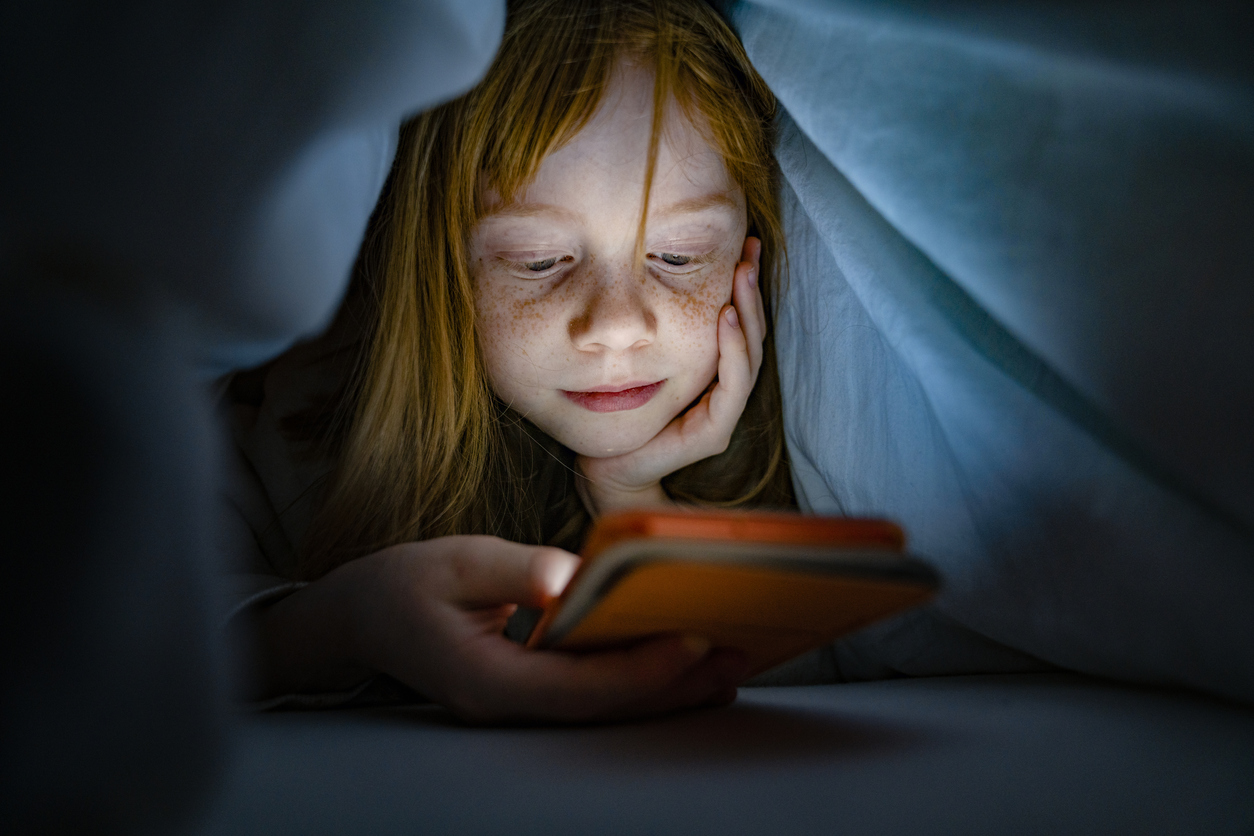
We tell our kids to look both ways before crossing the street and to never take candy from strangers, but then we put a device in their hand and grant then countless hours of screen time. For a lot of kids, that means an increased risk of mental and physical health problems, from ADHD and depression to addiction, headaches and eye strain.
For years research has shown that frequent internet usage can have negative affects on the adolescent brain. A study presented at the Radiological Society of North America (RSNA) in November 2017, concluded that smartphone addiction can cause chemical imbalances in the brain of children and lead to significantly higher scores in impulsivity, insomnia severity, anxiety, and depression.
Researchers have found strong correlations between the amount of time kids spend in front of a screen and the likelihood of their developing ADHD. For kids who already have an ADHD diagnosis, excessive screen time can exacerbate their symptoms.
As child therapist Ilana Winter of The Modern Parenting Method points out “Excessive screen time has also contributed to the overdiagnosing of ADHD in children right now. A lot of behaviors in neurotypical kids form because of excessive screen time and actually mimic behaviors of kids with ADHD. So if there is a doctor prescribing your child medicine for ADHD without first taking an interest in their screen time, I would question that.“
Another study found that generalized internet addiction among children and teens also leads to poor self-esteem, loneliness, decreased life satisfaction, social anxiety, and lack of connection. These young people whose brains are still developing are being hardwired to be less social, less interactive, and they are experiencing numerous associates psychological disorders because of it.
This call to curb internet and gadget addiction in children has been met with some interest but a little pushback as well. The average teenager in the United States receives their first smartphone at around 10 years old and spends more than 4.5 hours each day on social media, gaming, and other internet based activities. Now major players in child welfare, such as Common Sense Media’s CEO James Steyer, are supporting the movement, citing cellphones as a public health concern, especially among children and teens.
By the time a child is 3 years old, they have formed 1,000 trillion neuron connections. Many of the life skills a child will need and use throughout their lifetime are at peak brain development from birth to around 4 or 5 years of age. This includes emotional control (peaks at around 1), social skills (peaks at around 2-3), and habitual responses (peaks at around 1). Think about that next time you see a young child tapping at a screen.
As Ilana Winter puts it, “It’s more important than ever that modern parents get really confident in setting and holding boundaries with their kids around screen time—with collaboration and understanding, to avoid a power struggle. They also need to get really comfortable having open conversations about taboo topics with their kids. Because if they don’t, whatever they see online or from a friend’s device will be their teacher. The best teacher is you. The best app is you.”







